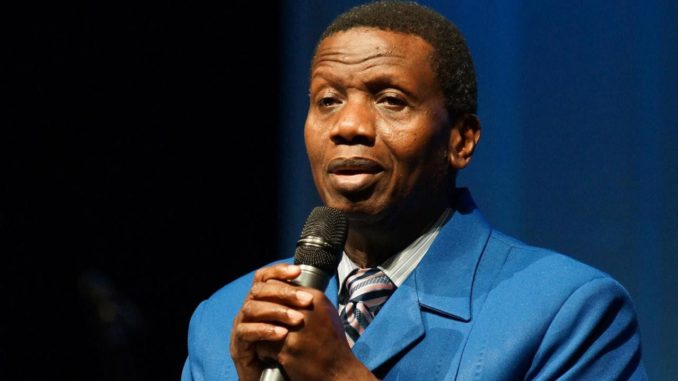
The headquarters of RCCG is adjacent to Makoko slum along the Lagos waterfront. The poverty there is dead end rock bottom. The community has had varying degrees of help, but nothing seems to be able to shake off the condition.
Daddy Freeze said the Church should pay tithes to the poor in the slums, and to the poor – in general. He believes the growth of the Church should alleviate poverty in Nigeria. OK.
But, paying to the poor has no connection with what tithing means, regardless of one’s agreement level with the tithes doctrine.
Whose responsibility is poverty?
Who is responsible for the poverty of the people living in Makoko? Whose responsibility is it to bring prosperity to them?
What are the key issues, and how does social responsibility, or government, make ways for them?
There have been free meals. Schools have been built there. There are free health services. There are handouts – on a regular basis – for residents of the slum.
Government, companies, churches, international funding, etc have made efforts, but it is a place that is conspicuously neglected.
There is little or no hygiene there; wastes are dumped ashore. It is roundly fetid and safety measures – in general – are askance.
The poverty at Makoko, though worse, is evocative of the general situation across Nigeria. So, something is wrong with the policies and projects that should fight national poverty.
With the absence of governments and their resources to the strikingly poor, the guilt is left to Churches, and organizations, to bear.
Some Churches, and others do one thing, but it is like a pin in a sinkhole; A School? Try again; Clinic? You’d have to do better next time, etc. So any individual or group could be doing, but nothing may show for it.
What Should The Church Do?
Should the Church cease to exist because of poverty? NO. Should the Church stop growing because of poverty? NO. Should the Church focus on national development and forgo the Kingdom of GOD? NO.
So, what should the Church do?
Maybe a little more, tactically; direct welfare [like international aid] for several years has not moved the needle for poverty. If for example, Makoko slum residents are well served, extra migration will be expected there and it would be overwhelming for any organization or group without government’s budget might.
The Church too has poor members, who should be the first recipient of welfare – of the household of faith. So the Church probably needs a poverty alleviation strategy, for members and non-members.
There is pressure on the Church – with the weird attacks on the internet for RCCG. So the Church could begin looking at what and how to balance, and should ask members for suggestions, on what and how to proceed.
There can be Suggestion Offering Sundays for this, as well at looking at areas where the social responsibility of the Church would laser focus on – and not get distracted.
The Church may partner State governments for some of the ideas they get, in areas where the budget would be too much for them, States could do it for their people on a general scale. The Church can also talk to organizations that are their industry allies – for some partnership. The Church’s University too can look at contriving solutions on how to rid poverty in a community or in a state or nationally.
The Church may look at private groups for members in need, and may also explain to them that in terms of tithes and offerings, if you do not have, or believe, or convinced, if possible for you – avoid.
Makoko Convention
Maybe a similitude of how vaccines went through every nook, and polio was eradicated, could be an example on how to proceed for Makoko.
Data! In answers from residents about why they remain there, what their problems are, what they want, how they are coping, why the population is growing, examples of ex-residents who made it, welfare that worked, those that failed, safety procedures, maintenance, unions, quality, etc.
Looking from the outside, it is easy to say they need a privy, and go there and build for them, but then it gets used, becomes unkempt and gets damaged. So, to know how to proceed, tactical questions, for answers, are necessary. The Church’s University may help them get useful data.
If it works, it could become a model to solving poverty across Nigeria, or other problems.
Makoko is similar to some creeks in the Niger Delta. So the Church on this solutions path may be a good thing.
However this may sound, it may not do great, or may be the wrong approach, who knows?
END

Hmmm…..